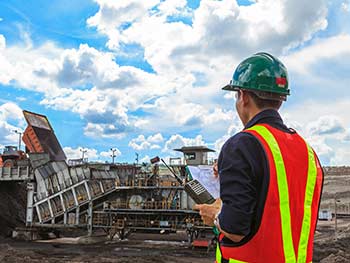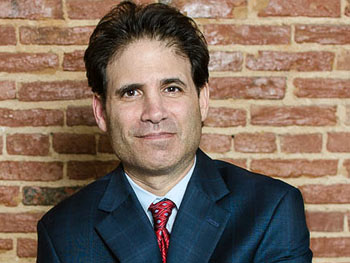Diesel Exhaust Exposure and Your Respiratory System
 A diesel engine is one of the workhorses of our world. While passenger vehicles these days may have “clean” diesel engines, the same is generally not the case with road construction equipment, large trucks such as eighteen-wheelers, and mining, agricultural, and manufacturing machinery or equipment. The millions who work with and around such equipment—construction workers, heavy equipment drivers, truck and bus drivers, mechanics and garage workers, bridge and tunnel workers, materials handlers, miners, oil and gas workers, railroad workers, and loading dock workers and longshoremen—all receive exposure to diesel exhaust. If you have been diagnosed with a condition related to diesel exhaust exposure and believe it may be linked to your work, consulting a Baltimore truck accident lawyer can help you understand your legal options and pursue compensation for your losses.
A diesel engine is one of the workhorses of our world. While passenger vehicles these days may have “clean” diesel engines, the same is generally not the case with road construction equipment, large trucks such as eighteen-wheelers, and mining, agricultural, and manufacturing machinery or equipment. The millions who work with and around such equipment—construction workers, heavy equipment drivers, truck and bus drivers, mechanics and garage workers, bridge and tunnel workers, materials handlers, miners, oil and gas workers, railroad workers, and loading dock workers and longshoremen—all receive exposure to diesel exhaust. If you have been diagnosed with a condition related to diesel exhaust exposure and believe it may be linked to your work, consulting a Baltimore truck accident lawyer can help you understand your legal options and pursue compensation for your losses.
Why is such exposure a big deal? Diesel exhaust (DE) is composed of gases and particulates that arise from the combustion of diesel fuel, which is a “dirtier” fuel source than gasoline. Diesel particulate matter (DPM) contains largely organic carbon compounds; these compounds include cancer-causing substances known as polycyclic aromatic hydrocarbons (PAH). Anyone with regular exposure to DE/DPM/PAHs risks health consequences that range from respiratory irritation to headaches to respiratory diseases, including cancers.
Why Is Diesel Exhaust Harmful?
A number of chemical compounds make up diesel exhaust. Some of them are “greenhouse gases” that you may have heard of because they affect our environment, and some are known carcinogens or substances that negatively impact your health:
- Carbon monoxide
- Sulfur dioxide
- Nitrogen oxides
- Aldehydes (benzene and formaldehyde)
- Methanol
- Polycyclic aromatic hydrocarbons (PAHs)
- Volatile organic compounds (VOCs)
- Soot (carbon). The black smoke you see emitted from an exhaust pipe is 60 to 80 percent soot, or pure carbon.
Most diesel particulate matter is fine enough that the particles are easily deposited in the lower lungs after inhalation. Once the DPMs are stuck inside us, they can cause various negative health situations.
Who is Most at Risk?
Some people believe that those who work in various construction industries—roads, bridges, buildings, and so on—are the most exposed to the dangers of DE/DPMs. Operators of, or those working around, equipment such as the following machinery could suffer the risk of abnormal levels of exposure:
- Cranes
- Bobcats
- Front-end loaders
- Generators
- Compressors
- Rough-terrain forklifts
- Concrete mixers/trucks
- Powered work platforms
- Welding machines
Other researchers include situations involving insufficient free flow of air (such as in mines and chemical hazard circumstances) because those who breathe diesel exhaust fumes and particulates in such circumstances experience a heightened risk.
The Health Risks of DE/DPM Exposure
If your occupation means that you are regularly breathing diesel fumes and particulates, you should be aware of the exposure hazards. Inhaling DE/DPMs can cause burning, itchy eyes, coughing, wheezing, a tight-chest feeling, and difficulty breathing in general. The reason for your symptoms is likely to be occupational if the signs disappear when you are not within range of diesel fumes.
Long-term exposure to diesel exhaust can create various chronic respiratory problems. If you suffer from asthma, heart disease, emphysema, or significant allergies, your problems can be worsened by exposure to diesel exhaust and fine DPM particulates.
For those without the health problems listed above, long-term exposure to diesel exhaust and particulates can still create problems, because it increases your chances of both lung cancer and bladder cancer. Shorter-term exposure can reduce your lung capacity.
Because of the results of certain studies, the National Institute for Occupational Safety and Health (NIOSH) is recommending that DE be considered a “potential occupational carcinogen.” It turns out that, in lab experiments, diesel exhaust exposure in mice and rats created cancers. NIOSH is assuming that limiting exposure to DE/DPM in the workplace will reduce the chances of certain occupational cancers.
How Can We Correct the Problem?
Diesel engines often continue to operate for as long as 30 years, meaning that older, less efficient, and therefore dirtier diesel engines are still in use. However, older engines can be modified to reduce harmful emissions through the following actions:
- Installing certain retrofitted devices, such as an exhaust filtration device, that prevents DPM from entering the workplace air
- Better maintaining older engines
- Rebuilding older engines
- Replacing older engines that cannot be improved
- Using cleaner fuels where possible, such as a low-sulfur fuel.
How Can We Protect Workers?
Worker exposure to DE/DPM can be reduced through the following approaches:
- Keep exhaust pipes directed away from a machine’s operator and nearby workers. Simply preventing DE from blowing directly on those breathing it can make a big difference.
- Use catalytic converters if none are installed. They help reduce hydrocarbon and aldehyde concentrations. However, the converters must be used in combination with low-sulfur fuels.
- Improve ventilation if equipment is operating indoors, and inspect hoses for defects and leaks. Use hoses to exhaust fumes to the outdoors if possible.
- In heavy machinery, pressurized cabs that employ high efficiency particulate air (HEPA) filters can reduce exposure to DE/DPM by equipment operators in the cabs.
- Practice good work habits, such as shutting off engines when they are not needed, and employing aids to start older engines (such as block heaters) to avoid the problems that can lead to increased DE.
If you must use a respirator as an interim measure to protect yourself, an N95 respirator is called for at the very least.
The workplace can be filled with many risks and dangers. Breathing in exhaust may not seem like one of them, but diesel particulate matter can lead to serious, even deadly, health problems. Protect yourself when at all possible, and seek legal assistance if you believe you have an occupational injury.
Injured on the Job? Call A Local Baltimore Work Injury Lawyer.
 Many situations can place workers at risk, including exposure to dangerous substances over an average workday. These risks include the inhaling of toxic substances such as the components of diesel exhaust and other harmful chemicals. Steve Heisler has devoted 25 years to helping injured people and their families pursue compensation from those who caused them to be injured. Steve approaches each case with compassion and thorough investigation, leaving no stone unturned in his goal of obtaining justice for persons harmed by the actions or inactions of negligent employers, manufacturers and sub-contractors. If you have been harmed, or your loved one has been injured or killed, in a work-related accident anywhere in Maryland, call the Baltimore workplace accident attorney of the Law Offices of Steven H. Heisler today at 1-410-625-4878, or use our online contact form. The initial consultation is always free.
Many situations can place workers at risk, including exposure to dangerous substances over an average workday. These risks include the inhaling of toxic substances such as the components of diesel exhaust and other harmful chemicals. Steve Heisler has devoted 25 years to helping injured people and their families pursue compensation from those who caused them to be injured. Steve approaches each case with compassion and thorough investigation, leaving no stone unturned in his goal of obtaining justice for persons harmed by the actions or inactions of negligent employers, manufacturers and sub-contractors. If you have been harmed, or your loved one has been injured or killed, in a work-related accident anywhere in Maryland, call the Baltimore workplace accident attorney of the Law Offices of Steven H. Heisler today at 1-410-625-4878, or use our online contact form. The initial consultation is always free.

Attorney Steve Heisler
Steve Heisler decided in 1996 that he was going to focus his law practice exclusively on injury cases. Since then, he has been representing injured people against insurance companies, disreputable medical practitioners and Big Pharma, and doing it with compassion, honesty and level-headed rationality. [ Attorney Bio ]

